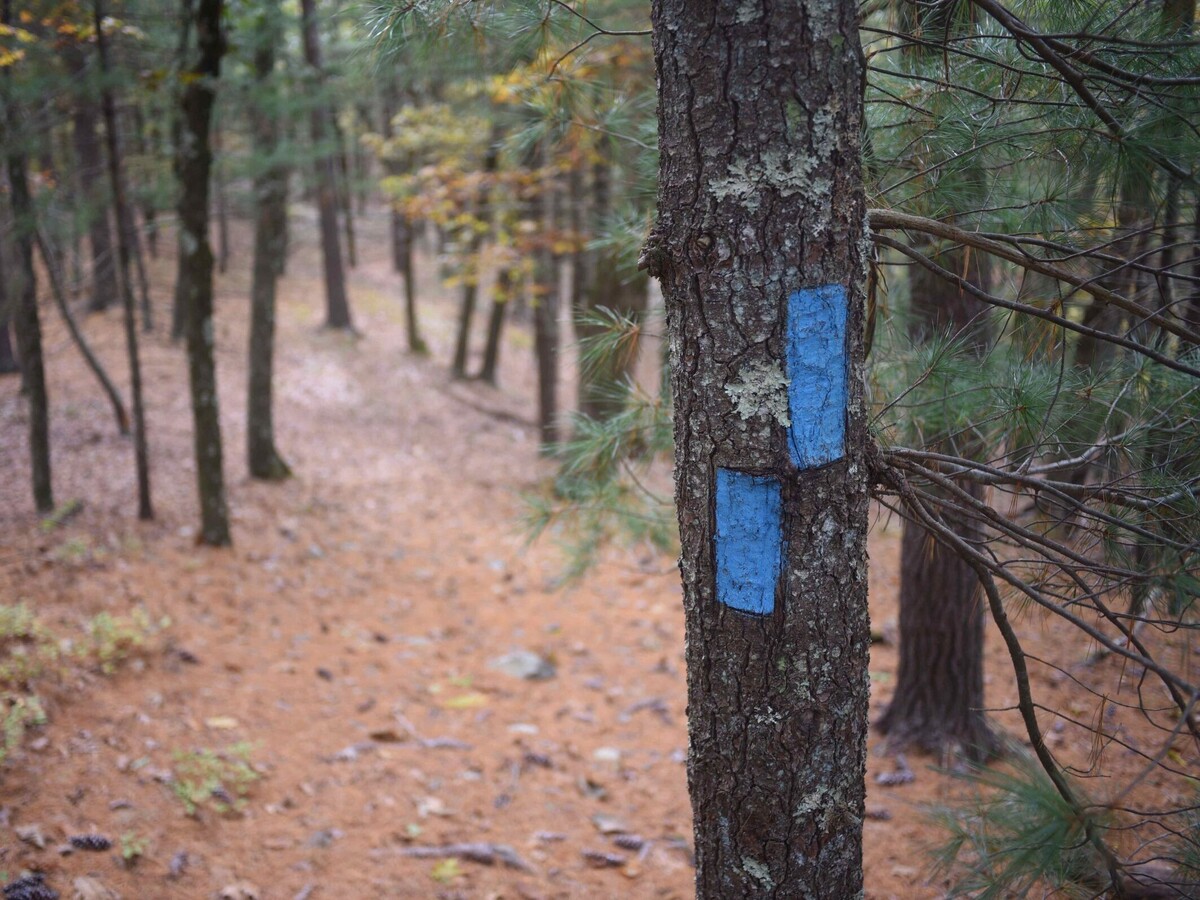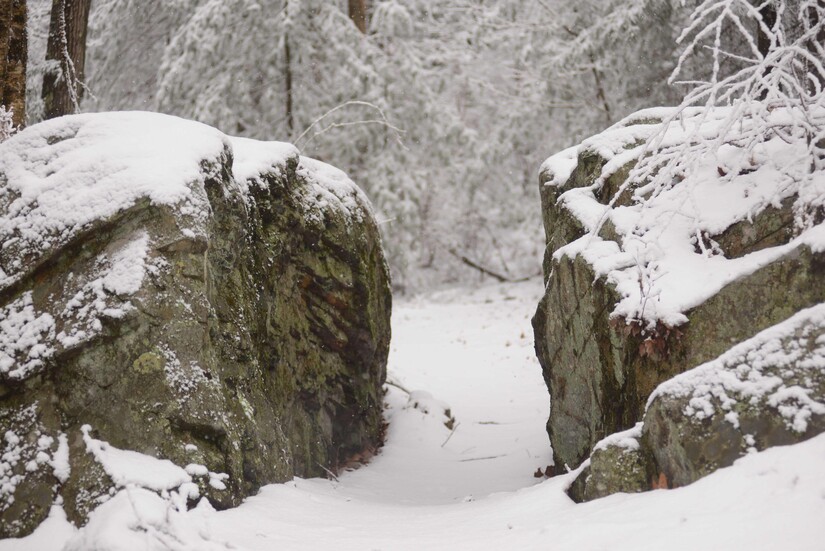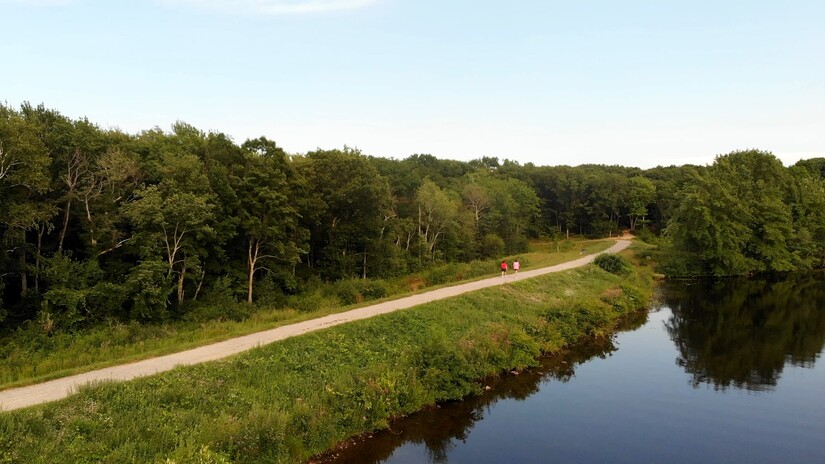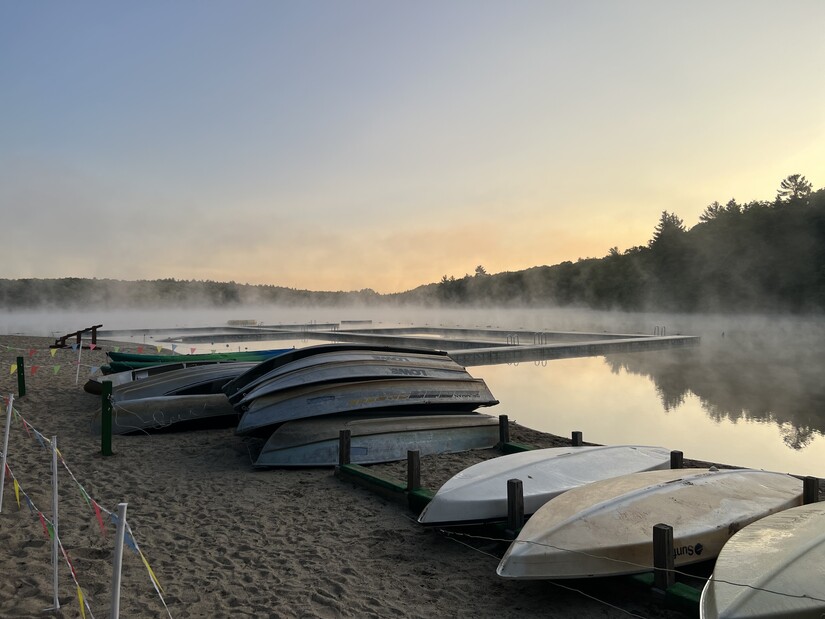Image


If all goes as hoped and expected, by the end of this June, a conservation goal which Hale Education (Hale) has had in its sights for decades will finally come to fruition with two conservation restrictions (CRs) that permanently protect approximately 1,100 acres of Hale’s land in Westwood and Dover. That equates to 95 percent of Hale’s property being protected from development. If approved by the state, the two CRs will result in the largest tract of contiguous, privately owned land to be protected in the Commonwealth of Massachusetts in many decades.
So far, the feedback from the state has been “fairly positive,” said Hale’s Executive Director Aaron Morehouse. He expects to obtain the state’s preliminary approval. When that happens, Hale will turn to the Select Boards of the towns of Dover and Westwood for their stamp of approval as well. Once the two towns approve the arrangement, the state can finalize the CR and sign off, said Dr. Morehouse.
It was around 2016-2018 that Hale Education (then Hale Reservation) began a formal process of looking for a partner in its project of creating a conservation restriction to protect the natural state of its land. The envisioned CR would not only protect the land, but it would protect public access, and protect the educational and recreational programming. It would prohibit or limit construction and other activities, such as development.
 Photo courtesy of Hale Education. Felsite Quarry is an area of Hale Education that would be protected by the proposed conservation restrictions, if approved by the towns of Westwood and Dover and the state.
Photo courtesy of Hale Education. Felsite Quarry is an area of Hale Education that would be protected by the proposed conservation restrictions, if approved by the towns of Westwood and Dover and the state.In 2019, Hale approached the towns of Westwood and Dover as potential purchasers of conservation restrictions on Hale land, within their town borders – about 555 acres in Westwood and about 600 acres in Dover. The land was appraised at $46 million, and Hale was offering the conservation restrictions to each town at $10 million each. Hale proposed to raise the remainder of the value, or $26 million, through private funding.
In January 2022, a task force appointed by Westwood Select Board concluded that acquiring a CR was in the town’s interest. It strongly recommended that Westwood Select Board sponsor an article to present to residents at the upcoming Town Meeting for that purpose. Westwood Select Board provided its town administrator with the authority to negotiate terms of a CR with Hale.
Around the same time, Dover Select Board indicated enthusiastic support for the idea of a CR, but noted reservations regarding the timing of introducing an article at its next town meeting.
As time progressed, it appeared that that negotiations had stalled. In response, the Trustees of Reservations, Westwood Land Trust, and Dover Land Conservation Trust joined forces to raise public awareness regarding the benefits of a CR in Westwood and a CR in Dover. However, although the CRs had many vocal proponents, there were also community members who vocalized opposition to the potential tax implications.
In the spring of 2024, without sufficient movement from the towns, Hale announced a change of strategy, ending its years-long attempts to partner with Westwood and Dover. In a statement to Westwood Minute at the time, a Hale representative commented, “While we have earnestly sought municipal support from both Westwood and Dover since this conservation effort began in 2019, we can no longer wait for that participation to materialize. Our board and executive leadership are committed to closing the Campaign for Kids, Conservation, and Community by June 30. This is an opportunity to complete one of the largest conservation projects in Greater Boston in more than a century, and we sincerely hope community members will step in to help us achieve that historic goal.”
The changed strategy meant that Hale doubled down on its efforts to raise private funding, instead of relying upon a lengthy purchasing process for the CRs through municipal policy. The change paid off. Through its fundraiser, Hale successfully raised over $38 million entirely from private donors towards its goal to permanently protect its land, public access, and its education and recreational programs, said Dr. Morehouse. Of that sum, about $15-$20 million will go into an endowment, which will continue to grow, and which is intended to provide financial sustainability for Hale, he said.
 Photo courtesy of Hale Education. Pictured is Noanet Dam, one of many areas that would fall under the protection of a conservation restriction, which Hale Education hopes will be finalized and filed by this summer.
Photo courtesy of Hale Education. Pictured is Noanet Dam, one of many areas that would fall under the protection of a conservation restriction, which Hale Education hopes will be finalized and filed by this summer.Through private donations and the endowment, Hale has achieved a similar level of financial sustainability that it had sought when it initially proposed in 2019 to sell two $10 million conservation restrictions to the towns of Westwood and Dover, supplemented by private fundraising. Now, in 2025, Hale has been able to announce that entirely through the support of private donors, Hale is in a financial position that enables it to limit and extinguish development rights to its land in perpetuity.
At the same time as it was raising funds and discussions with Westwood and Dover failed to materialize into agreements, Hale discovered a new partner in its ally, the Trustees of Reservations. That collaboration has resulted in not just one transaction to finalize a CR, but two simultaneous transactions resulting in two CRs on Hale property. According to Dr. Morehouse, it was at the end of 2024 that the stars aligned, and the CR was filed.
In February 2025, Hale, The Trustees of Reservations, and Dover Land Conservation Trust jointly announced that they had submitted the conservation restrictions for 1,100 acres of land in Westwood and Dover for approval by the state.
In one transaction, the Trustees will hold a CR with "gradations" of protection on almost 1,000 acres of Hale’s property in Westwood and Dover. On the vast majority of Hale’s property, building will no longer be permitted, although program activities will be allowed, along with passive recreation and environmental management practices. In other designated areas, the CR will limit building and expansion of infrastructure, while Hale continues to deliver its programming and services to the community. The Trustees will act a monitor and enforcer of these terms.
In the second, simultaneous transaction, Hale Education will transfer a 138 acre parcel of land in Dover to the Trustees’ ownership. Mr. Morehouse described the location of the 138 acre parcel as being situated across Dover Road, past the transfer station and solar field. He said it is a strategic parcel for the Trustees, as it abuts the Trustees-owned Powisset Farm and plays a part in creating a contiguous connection of Trustees owned land. The transaction will be funded by a Conservation Partnership Grant to the Trustees from the Massachusetts Executive Office of Energy and Environmental Affairs (EEA). Dover Land Conservation Trust will be holder of the CR on that smaller parcel, and will monitor and enforce the terms.
Dr. Morehouse also described a 60 acre “envelope” in the Carby Street area of Hale’s property in Westwood, where the organization’s current office is located, as being excluded from the CR. This exclusion will give Hale the flexibility to further develop its operations.
Following approval of the CRs, the public may see little change in the property – the purpose of the CR is to restrict and extinguish future development, after all. However, there will be upgrades and “facelifts” given to current infrastructure, a new pavilion in the forest, and a new office building will be breaking ground later this year. These improvements will be paid by fundraising monies that are not part of the endowment.
Another benefit of Hale Education having CRs in place is the ability to access funding beyond Hale’s education mission. The CRs will open the door to funding for conservation projects, trail improvements, and other things that have a conservation focus, said Dr. Morehouse.
 Photo courtesy of Hale Education. Boats are lined up on the sands of Hale Education's South Beach.
Photo courtesy of Hale Education. Boats are lined up on the sands of Hale Education's South Beach.“What the folks can expect is that Hale is here, in perpetuity, to steward the lands for public access, and for education, and recreation programs that we provide,” said Dr. Morehouse. He commented on improvements to Hale's programming as well, as Hale revamps its membership structure for South Beach (also known as Membership Beach) to make it more affordable. The two-week pass for beach access has been discarded. A simpler offering allows visitors to choose between a season pass or day pass.
As Hale’s new executive director, Dr. Morehouse acknowledged the hard work of many people, including his predecessor Eric Arnold, in bringing Hale to this place of long term sustainability. The sustainability achieved is for both the physical acres of Hale property as well as the overall financial stability of the organization.
“This is a really exciting time for Hale. . . . Hale has been around for 100-plus years. I feel blessed everyday coming here, being part of this community, and seeing where Hale can go,” said Dr. Morehouse.
Thanks to Aaron Morehouse, Executive Director of Hale Education, for speaking with Westwood Minute for this article.
Updated 4/23/2025 at 10:50 p.m.